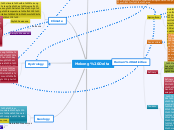Mekong Delta
Vegetation
The main crops within this region is probably rice which is also the most comm on food in Vietnamese diets. In addition, there are many other essential crop such as sugarcane, corn, fruit,...
Furthermore, forestry also occur here which causes some negative affects on our environment because deforestation( people harvest wood in an unorganized way )
Last but not the least, in aquaculture there are many fish and shrimp farms that bring a huge profit for the area
Human Activities
Agriculture
SubtMekong Delta has an huge amount of main soil groups including Alluvial, Alkaline, Grey soil which are suitable for rice, fruit vegetable and short-term industrial trees.
_ The element of climate in Mekong River Delta is suitable for biological growth and development which is beneficial for growing crops.The most famous crop here is probably rice which is the main reason why Mekong Delta is called the Rice Basket of Vietnam.
Paddy field account for 1,341,700ha and produce about 8,345,800 tonnes of rice annually.
Fruit field account for 46,000 ha and produce about 509,200 tonnes of fruit annually.
Maizes field account for 16,400 ha and produce about 114,900 tonnes of corns annually.
Aquaculture
_This region is located among the coastline with the length of 732 km with many estuaries and bays. Which creates opportunity for local people to fishing more effectively.
_ There are variety of valuable marine creatures in large reserves in the sea within this region.
_ Mekong delta has been formed with many different long rivers, therefore , the amount of fish will always be balanced.
Aquaculture farms account for 20,300 ha and produce 860,800 underwater product annually.
Refinery
_ Mekong Delta contains lots of useful natural resources which is really useful for building and operating refineries.
Sugarcane
oil
granite occasional limestone
Refinery although help our economy to develop significantly fast, but it cause many negative impact on other industry namely Aquaculture and Agriculture. Specifically, the sewage that release from the refinery pollutes the water that harm the aqua farms and also the crops.
Tourism
_ This region possesses many islands such as Tho Chu island,Phu Quoc island which are really potential for tourism to develop. _Furthermore, there is a wonderful river systems with crowded market right onto the rivers that attract thousands of tourists annually
_ Mekong Delta contain a lively biodiversity which is a great opportunity for researching activities to be occurred.
_ Mekong Delta is also a wonderful place for educators and students to come and broaden their knowledge in Biology, Geography and the history of this region.
Soil Type
Mekong Delta has an huge amount of main soil groups including Alluvial, Alkaline, Grey soil
Grey soil
Alkaline
Alluvial
Climate
Overall, the climate within Mekong Delta is classified as tropical monsoonal. Mekong Delta has high annual average temperature of 35 degrees,Precipitation: 46.0 mm
and Humidity: 78%.
Seasons
Dry seasons
Beginning at the middle of November and end at the middle of April. Throughout this duration, drought occurs which causes a significant impact on our agriculture( plants aren't provided with enough water)
Rainy season
Usually from the beginning of May until the end of November. During this time, flooding occurs frequently that cause lots of serious problem for local people, especially the crops.
This region is located among the coastline with the length of 732 km with many estuaries and bays.Therefore, Flood and Drought occur annually within many area in Mekong Delta that causes lots of considerable issues for the Agriculture, Tourism, and Refinery.
Other significant problem including lacking of fresh water and also, the water within Mekong Delta is getting salty and the amount of metal content is becoming higher by the affect of refinery.
Geology
The Mekong Delta is a low-level plain, one inundated by hundreds of small rivers and canals. Thick jungles and mangrove swamps cover the far-southern areas of land.
Natural resources
Metallic resources
granite occasional limestone
Non-metallic
oil and gas gemstones and coal

Aqua farms(Aquaculture)

refinery

Tourism

Agriculture

Boat trip on Mekong River

Can Tho Floating Market

